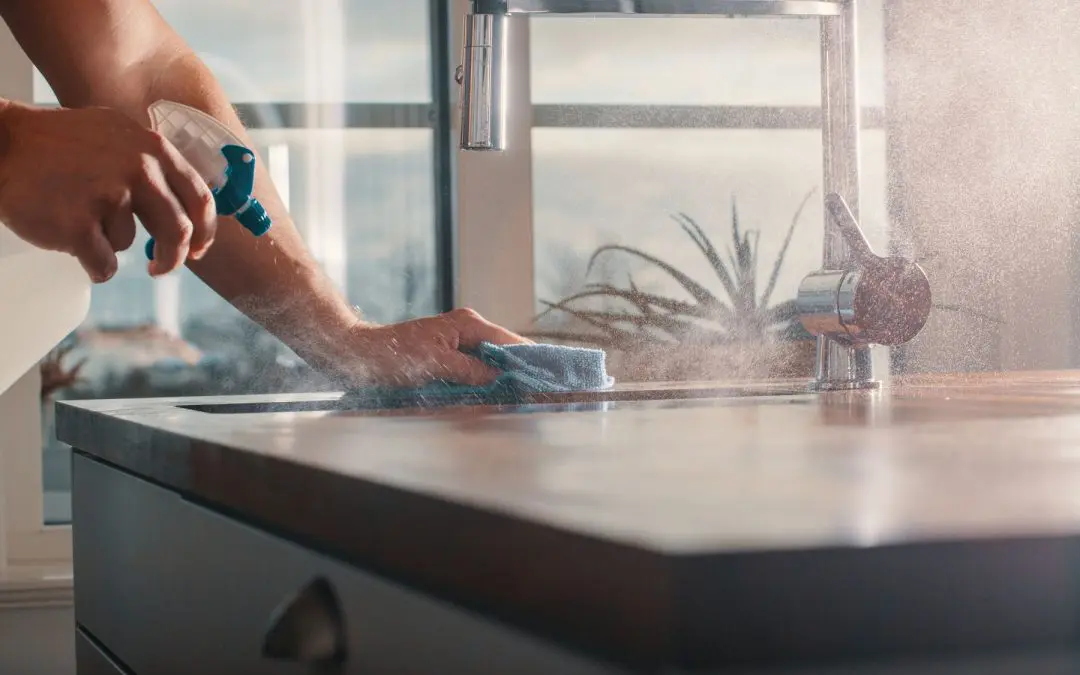The Power of Homemade Cleaning Supplies
Making your own cleaning products is easy, affordable, and gives you control over the ingredients they’re made of. Many of the most effective cleaning agents are probably already sitting in your pantry. Here are our top tips for making homemade cleaning supplies.
Essential Ingredients for Your Cleaning Pantry
Before we dive into specific recipes, let’s stock your “cleaning pantry” with the necessary ingredients. First, there’s white vinegar. This acidic marvel cuts through grease, dissolves mineral deposits, and acts as a natural disinfectant. Don’t worry about the smell; it dissipates quickly. Next is baking soda, a gentle abrasive, deodorizer, and mild alkali, fantastic for scrubbing, unclogging drains, absorbing odors, and neutralizing acids. Lemon juice, another acidic powerhouse, provides natural bleaching properties, cuts through grime, and leaves behind a fresh, clean scent.
Then there’s Castile soap, a concentrated, vegetable-oil-based soap, incredibly versatile for everything from all-purpose cleaning to dish soap. Essential oils are an optional addition. While not necessary for cleaning effectiveness, essential oils like tea tree (antibacterial), lavender (calming and antibacterial), and peppermint (refreshing) add a pleasant scent and offer additional antimicrobial properties.
Recipes for a Sparkling Home
Now for the fun part, mixing up your own cleaning solutions! Here are a few tried-and-true recipes that will tackle most cleaning tasks in your home.
All-Purpose Cleaner
This is your go-to for countertops, sinks, light switches, and general surface cleaning. To make it, combine 1 cup white vinegar, 1 cup distilled water, and if you wish, 10-15 drops of your favorite essential oil (orange or lemon are great for freshness) in a spray bottle. Remember to shake gently before each use.
Glass and Mirror Cleaner
Achieve streak-free shine without the blue streaks! Simply mix 1/2 cup white vinegar, 1/2 cup distilled water, and optionally, 1/4 teaspoon Castile soap (which helps cut through grime) in a spray bottle. For best results, use a microfiber cloth.
Scouring Paste for Tough Grime
This paste is perfect for sinks, bathtubs, and stubborn stains. Combine 1/2 cup baking soda with enough liquid Castile soap or water to form a thick paste. Apply the paste to the dirty area, let it sit for a few minutes, then scrub with a sponge or brush and rinse thoroughly.
Toilet Bowl Cleaner
Say goodbye to rings and stains with this simple solution. Start by sprinkling 1/2 cup baking soda into the toilet bowl. Next, pour in 1 cup white vinegar. Let it fizz for 15-30 minutes. Finally, scrub with a toilet brush and flush. Add a few drops of tea tree essential oil for extra disinfection.
Tips for Successful Homemade Cleaning
Always label everything – clearly mark your bottles with the contents and the creation date. Use distilled water, as tap water can leave mineral deposits, especially in glass cleaners. Store your homemade cleaners properly in a cool, dark place. Before applying any new solution to a large surface, always test it in an inconspicuous area, particularly on delicate materials. Finally, embrace microfiber cloths. They’re incredibly effective for cleaning and can be washed and reused many times, further reducing waste.
Making your own cleaning supplies is about embracing a more mindful approach to home care. It’s about knowing exactly what’s in your cleaning products and feeling confident that you’re creating a clean, healthy environment for your family. Give these recipes a try, and prepare to be amazed by the power of natural cleaning!
FAQs About Homemade Cleaning Supplies
Are homemade cleaners as effective as commercial cleaners?
Yes, absolutely! For most everyday cleaning tasks, homemade cleaners are incredibly effective. Vinegar, baking soda, and lemon juice have powerful cleaning, deodorizing, and disinfecting properties that can rival many store-bought products.
Are homemade cleaners safe for all surfaces?
While generally safe, it’s always best to test any new cleaning solution on an inconspicuous area first. For example, vinegar can damage natural stone like marble or granite over time, so it’s best to avoid using it on those surfaces. Always do a patch test first.
How long do homemade cleaners last?
The shelf life of homemade cleaners varies depending on the ingredients. Solutions containing water, especially those with essential oils, are best used within a few weeks to a month to prevent bacterial growth. Dry mixtures like scouring pastes can last for several months if stored in an airtight container.
HomeVantage Home Inspections provides home inspections in Northern New Jersey. Contact us to request our services.

